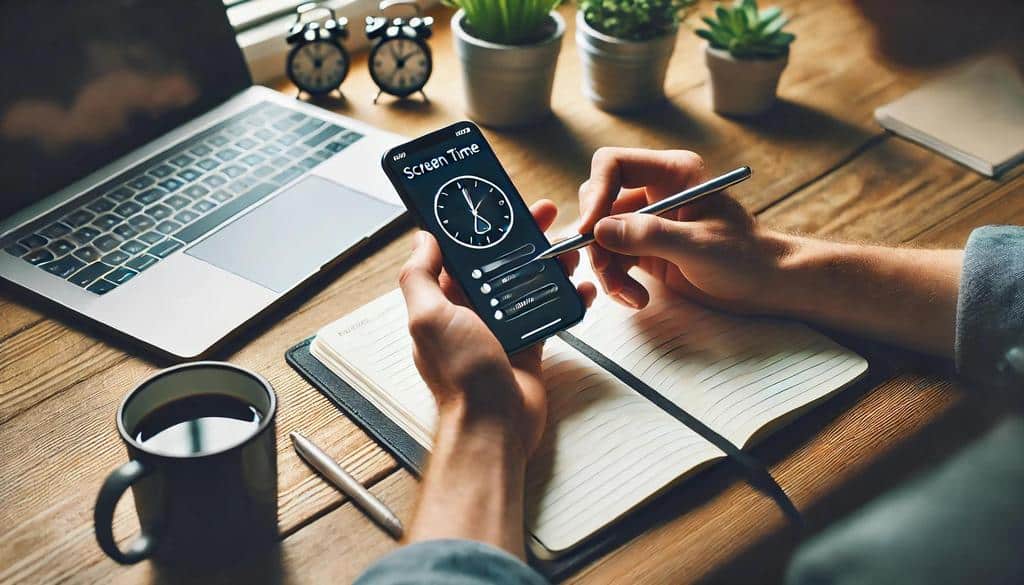In this current digital era, technology is present in all parts of our lives. We have devices like smartphones and tablets, laptops, and smartwatches. Screens are everywhere we look around us.
Technology brings numerous benefits, like improved communication tools, easy access to information, and enjoyable user activities. However, excessive screen time can lead to digital overload, causing mental stress that could negatively impact an individual’s mental well-being. Balancing the advantages of technology with mindful screen usage is crucial to maintaining a healthy mental state in the digital age.
Controlling digital overload is very important to have a balanced and healthy life. Here, we provide some useful strategies for reducing screen time and lessening its effects on mental health.
Understanding Digital Overload
Digital overload is when someone uses digital devices too much, which can cause stress, worry, and other problems with mental health.
- Difficulties in focusing
- Disrupted sleep patterns due to screen usage
- Eye discomfort from prolonged screen exposure
- Headaches
- Feeling overwhelmed by constant notifications and information bombardment
If you or someone you know experiences these symptoms, taking steps to manage digital overload becomes essential to safeguard mental and physical well-being.

Set Screen Time Limits
A strong method for handling digital overload is to create screen time limits. Establish certain timing boundaries for various uses like social media, work tasks, and amusing activities. Utilize the built-in screen time tracking features on your mobile phones and tablets, which are available with most devices and many apps as well. These limits ensure that screen time doesn’t invade other crucial parts of life like physical activity, socializing, and rest.
Create a Tech-Free Environment
Making specific spots or schedules as tech-free zones may greatly diminish screen time and enhance mental health. For instance, you might think about having a policy of no-phones while eating food or inside your sleeping place. This action promotes conscious consumption and betterment in sleep standards by lessening the encounter with blue light that hampers melatonin creation (the hormone responsible for sleep). Making a place without technology helps to encourage connections in real life and offers a rest from the continuous digital input.
Practice Mindfulness and Digital Detoxes
In dealing with the stress brought about by digital overload, techniques such as mindfulness practices, including meditation and deep breathing, can be valuable aids. These methods help individuals manage their mental well-being amidst the challenges posed by excessive digital stimuli.
Regular mindfulness activities improve self-understanding and encourage a peaceful feeling, making it simpler to fight against the desire to frequently check digital devices. Moreover, setting up regular periods of digital detoxes – times when you totally disconnect from all screens – might serve as a reset button for your mind and body. This is an opportunity to do things without being connected, such as reading books, going for hikes, or being with family and friends.
Prioritize In-Person Interactions
The importance of human connection for mental well-being is undeniable, and it frequently manifests unexpectedly in various forms. Being socially connected is crucial for maintaining a healthy mindset, and these connections can emerge spontaneously, impacting our mental health positively.
Prioritize face-to-face interactions over digital ones. Organize activities with friends and family that don’t involve screens—go for a walk together, have a picnic, or play board games. These physical meetings help grow better bonds and lessen the feeling of loneliness that can come with too much screen time. If you find social interactions uncomfortable, you can seek help from an online psychotherapist.
Manage Notifications and Digital Consumption
Constant notifications can add to digital overload by making you feel rushed and distracted. To manage your digital notifications effectively, consider adjusting your settings to prioritize important alerts or designate specific times for checking emails and messages.
Carefully curate the content you engage with online, selecting only what adds value and contributes positively to your digital consumption habits.
Stop joining useless email lists, unfollow unimportant social media accounts, and try to use fewer apps. This will help you lessen the amount of information you receive and concentrate on significant content.
Foster Healthy Digital Habits
To effectively address digital overload, establishing healthy digital habits is crucial. Begin by defining specific goals for screen time and monitoring your adherence to these objectives. Utilize available tools like screen time tracking apps or built-in digital well-being features on devices to help regulate and limit your screen usage. Incorporate regular screen breaks into your daily routine to prevent eye strain and mental fatigue. Consider implementing the 20-20-20 technique as a practical strategy: every 20 minutes, take a 20-second break to focus on an object 20 feet away, promoting eye health and reducing digital strain.

Manage Digital Overload and Enhance Mental Well-being
As our society increasingly embraces digital advancements, effectively addressing the issue of digital overload becomes paramount. Implementing strategies such as regulating screen time, designating tech-free spaces, practicing mindfulness, prioritizing face-to-face interactions, and managing notifications can significantly mitigate the negative effects of excessive screen exposure. These approaches not only enhance mental well-being but also elevate overall life satisfaction, fostering happier and more balanced daily routines.





